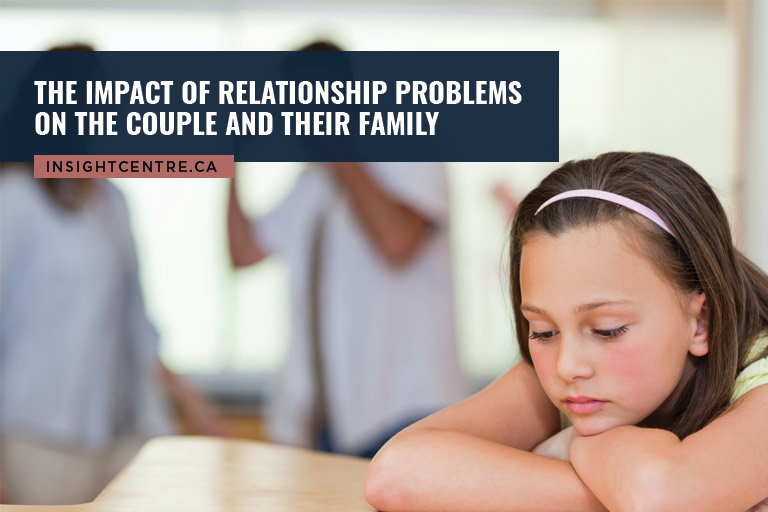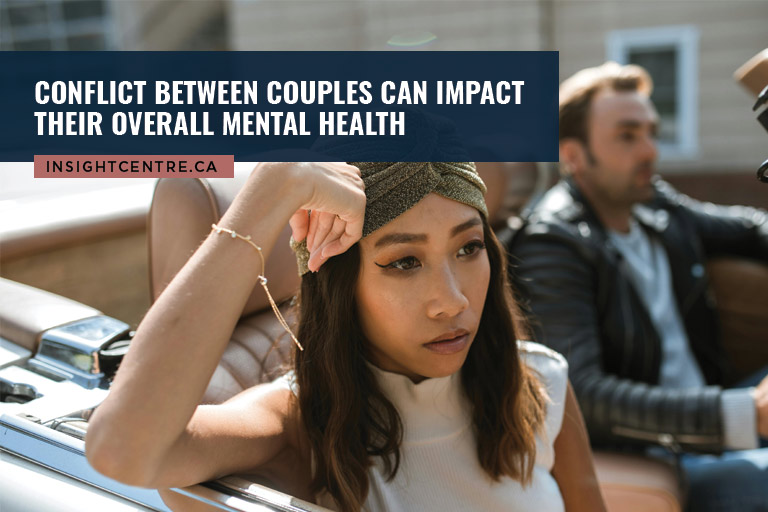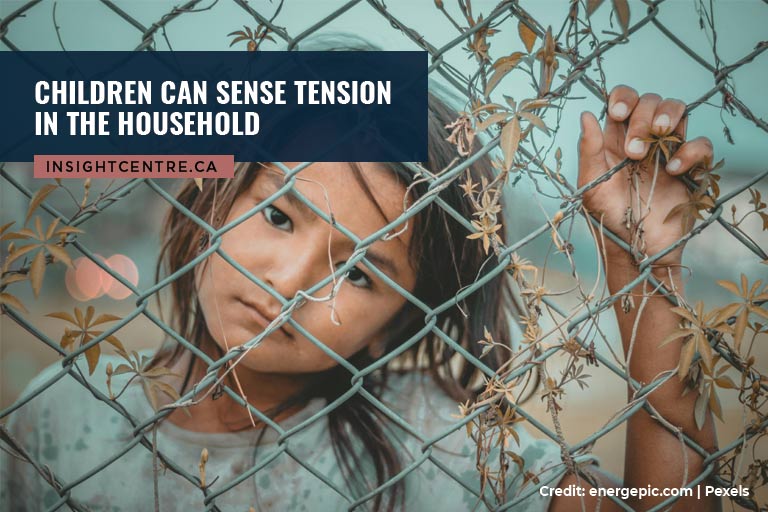
Relationship issues not only affect the individuals involved but also have a profound impact on their family dynamics. These problems can range from minor disagreements to more serious conflicts, with each having the potential to create a ripple effect that touches every member of the family. Understanding the nature of these impacts is crucial for addressing the underlying issues and seeking effective solutions.

Relationship issues often carry a significant emotional toll on both partners involved, affecting their mental health and overall well-being. This toll can manifest in various ways, including:
The uncertainty and ongoing conflicts within the relationship can lead to heightened anxiety levels for both individuals. This anxiety might stem from fear of the relationship’s future or the stress of unresolved issues.
The persistent negativity and emotional strain can contribute to feelings of hopelessness and depression. One or both partners may experience a loss of interest in activities they once enjoyed and a general sense of sadness.
Conflicts within a relationship can create a sense of isolation, as individuals may feel disconnected from their partner. This isolation can extend to withdrawing from social activities and support networks.
Constant conflicts and negative interactions can erode an individual’s self-esteem. Partners may begin to internalize criticism or feel inadequate, affecting their self-worth.
Over time, unresolved issues and continuous disputes can lead to a buildup of resentment between partners. This resentment can poison the relationship, making it difficult to remember the positive aspects and deepening the emotional divide.
A fundamental impact of relationship problems is the breakdown of communication between partners. This breakdown exacerbates issues and hinders resolution efforts:
Out of fear of conflict or hurting each other’s feelings, partners may avoid discussing pressing issues, leading to unresolved problems that continue to affect the relationship.
With diminished communication, misunderstandings become more frequent. Without clear dialogue, it’s easy for partners to misinterpret each other’s actions and intentions.
When communication does occur, it may be characterized by defensiveness and criticism rather than openness and understanding. This defensive posture can prevent meaningful conversations and solutions.
Effective communication is crucial for providing emotional support. A breakdown in communication can leave partners feeling unsupported and alone in their struggles.
In some cases, communication breakdown leads to silence or stonewalling, where one partner completely withdraws from the conversation. This can leave issues perpetually unresolved and increase frustration and isolation.
The stress and emotional turmoil associated with relationship problems can also have a direct impact on physical health, with several potential effects:
Constant relationship turmoil can elevate stress hormones like cortisol, leading to a range of stress-related health issues such as headaches and muscle tension.
The emotional distress can disrupt sleep patterns, leading to insomnia or poor-quality sleep. This lack of restorative sleep can exacerbate health problems and affect daily functioning.
Chronic stress from relationship issues can lead to elevated blood pressure, increasing the risk of hypertension and cardiovascular disease.
The ongoing stress can weaken the immune system, making individuals more susceptible to infections and illnesses.
Emotional distress can lead to changes in appetite, resulting in significant weight loss or gain. These changes can further impact physical health and well-being.
Over time, the cumulative effect of stress and emotional turmoil can increase the risk of developing chronic diseases, such as heart disease and diabetes, further highlighting the importance of addressing relationship problems for the sake of physical health.

The impact of relationship problems on children can be profound and varied, affecting their emotional, behavioural, and academic well-being:
Children may experience anxiety, sadness, or fear as a result of their parents’ conflicts. This emotional distress can lead to feelings of instability and insecurity.
Exposure to ongoing conflicts can result in behavioural problems, such as aggression, defiance, or withdrawal, as children struggle to cope with their emotions.
The stress at home can distract children from their studies, leading to difficulties with concentration, a drop in grades, and disinterest in school activities.
Children may withdraw from friendships and social activities, either as a result of their emotional turmoil or as a mimicry of their parents’ isolation.
Witnessing relationship problems can influence children’s perceptions of relationships, potentially affecting their future romantic and interpersonal relationships.
The ripple effects of relationship problems can extend beyond the immediate family, impacting broader family dynamics and social connections:
Conflicts within the couple can spill over into extended family relationships, causing tensions and choosing sides among relatives.
Couples may withdraw from social engagements or find their issues affecting friendships, leading to isolation and a lack of support.
In some cases, relationship problems can result in the loss of mutual friends who may feel compelled to take sides or withdraw to avoid conflict.
Engaging in couples counselling, couples therapy, or family therapy can offer significant benefits in addressing relationship problems and their wide-ranging impacts:
Therapy can provide tools and techniques for improving communication, helping partners to express their needs and listen to each other more effectively.
Through couples therapy, partners can learn to resolve conflicts in a healthier manner, addressing underlying issues and finding compromise.
Counselling can help rebuild emotional connections, enhancing intimacy and trust between partners.
Family therapy can be instrumental in mitigating the impact of relationship problems on children, providing a space for them to express their feelings and learn coping strategies.
Therapy can assist in healing wounds within the broader family system, improving relationships with extended family and friends, and restoring a sense of community and support.
The impacts of relationship problems extend far beyond the couple, affecting their children, extended family, and social relationships. The emotional, physical, and financial toll of these issues underscores the importance of seeking professional help. For those in need of support, Insight Centre Counselling & Psychotherapy is available at +1 647-633-1928. Their expertise in family counselling in Barrie can offer the guidance and assistance needed to overcome these challenges and foster a healthier, happier family dynamic. For more information, please visit Insight Centre Counselling & Therapy.
Copyright 2024 Insight Centre | All Rights Reserved | Sitemap | Powered by: Local SEO Search Inc.